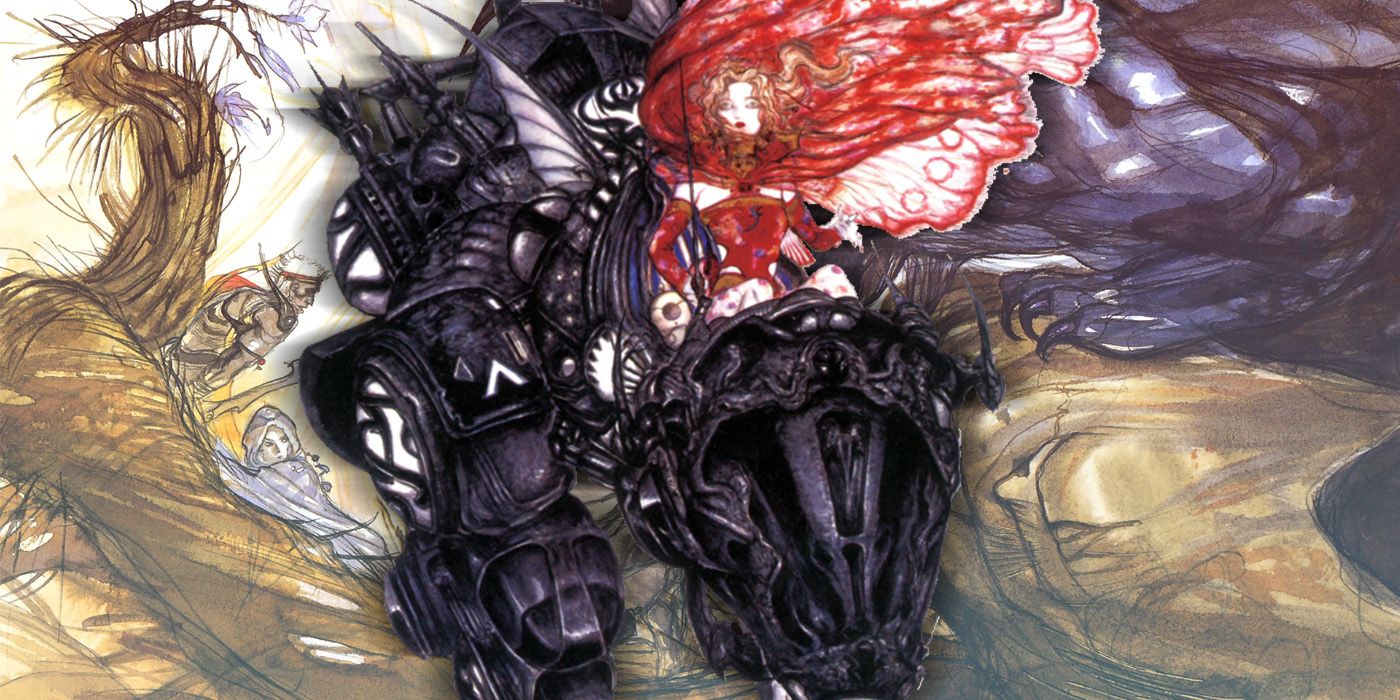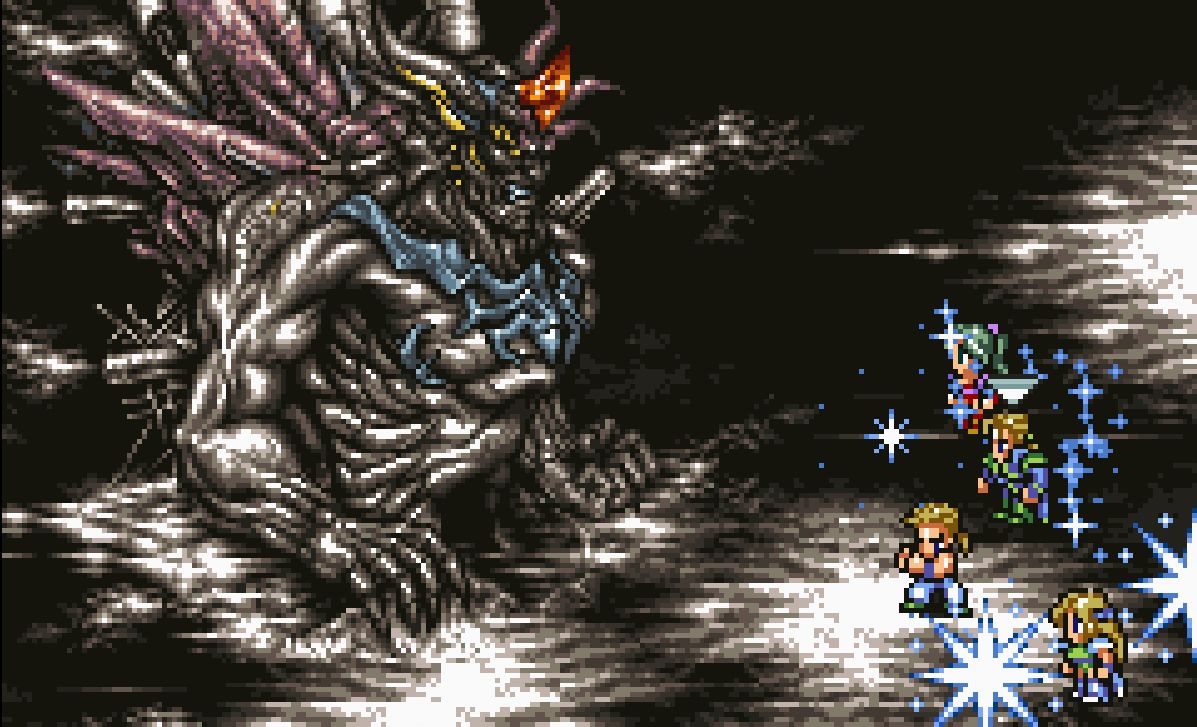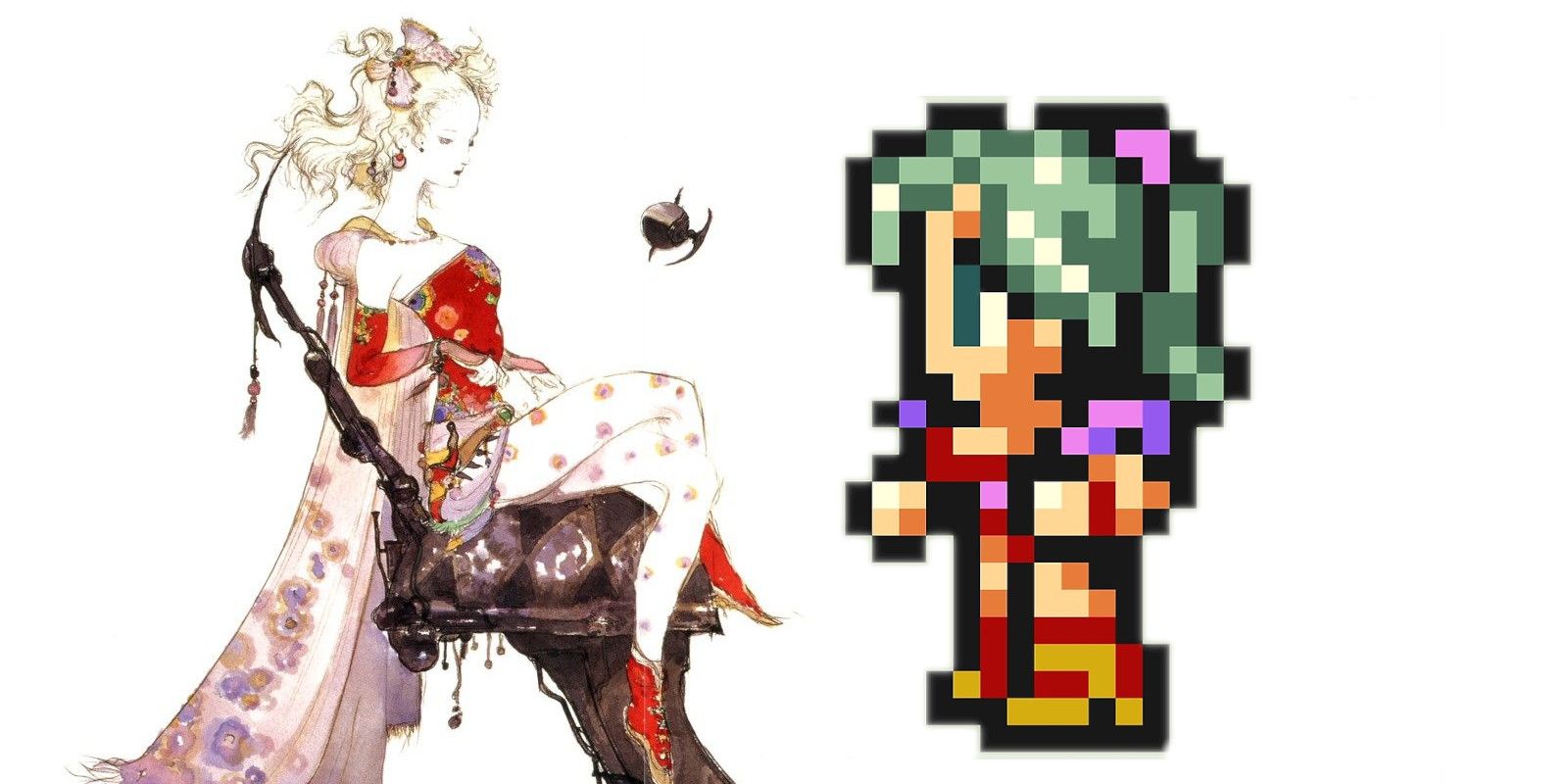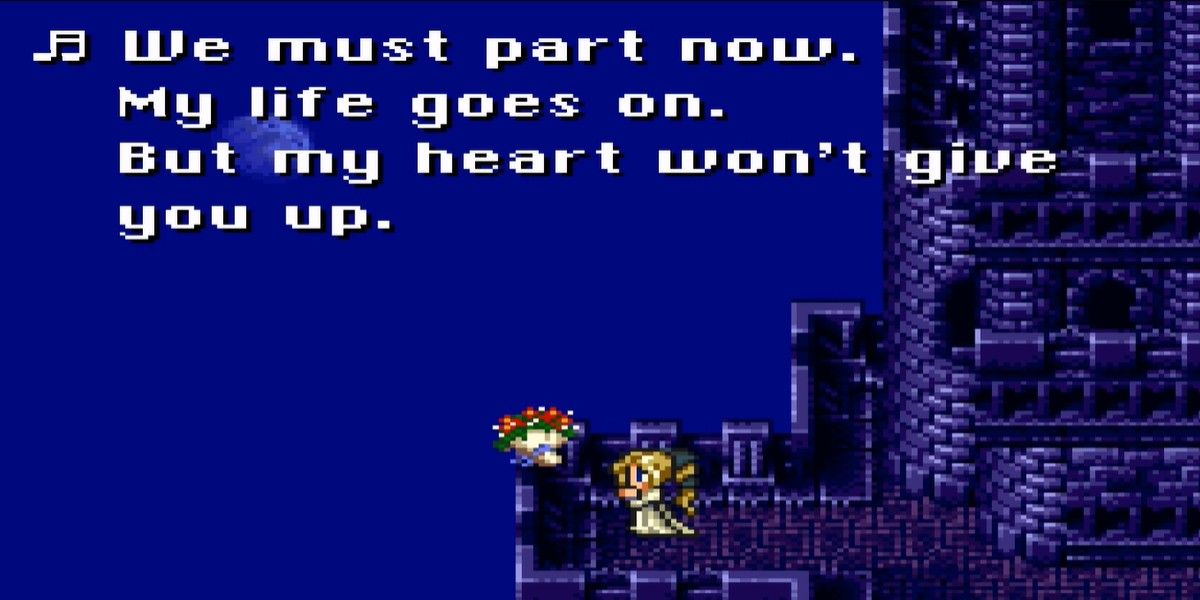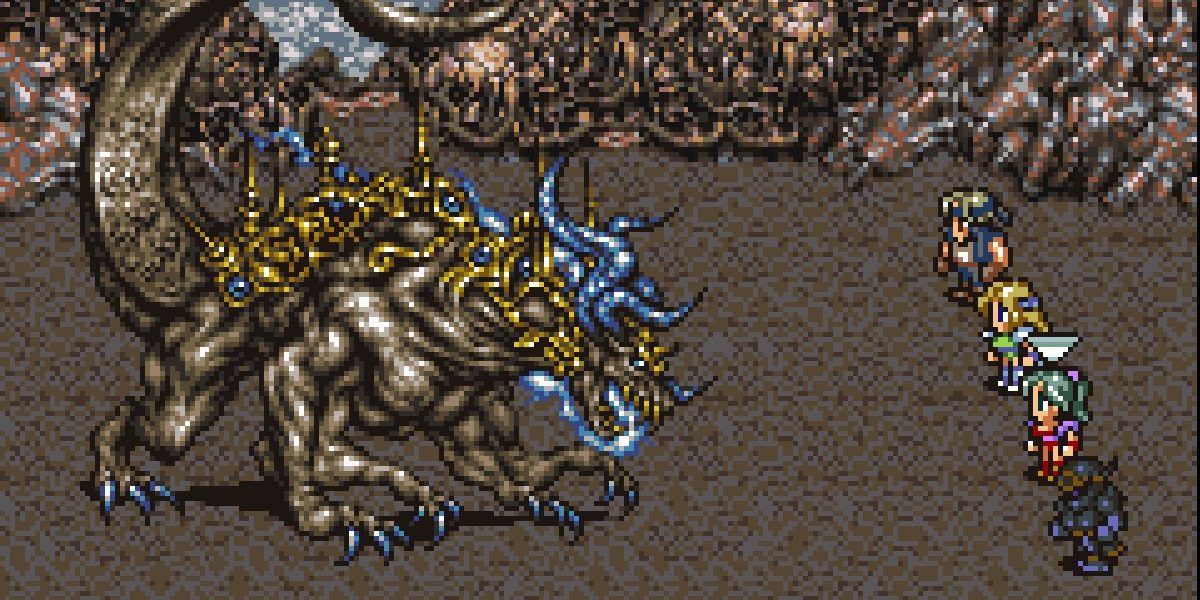After the financial and critical success of Square Enix's Final Fantasy VII Remake, it's about time the series takes another step back to a previous entry: Final Fantasy VI.
When Final Fantasy VI was released in 1994, it was far ahead of its time in terms of graphics, musical scoring and writing. Very few games during this period reached the same cinematic or dramatic heights -- not even other highly praised games such as Chrono Trigger and Secret of Mana. Final Fantasy VI persists as a masterpiece -- and it deserves a proper remake.
Graphics and Art
An important aspect to VI's identity is its beautiful art direction, provided by longtime Final Fantasy artist Yoshitaka Amano. From the mechanical menace of the Magitek Armor to the whimsical quirkiness of characters like Gogo, Amano's brilliant artwork contributed heavily to the instantly recognizable oil painting aesthetic of a fully realized world.
In Final Fantasy VI, Amano's style was accompanied by then-revolutionary graphics, with hand-crafted boss and enemy sprites, towns and caves rendered with complex lighting and shadows. Upgraded technology allowed the world map to be seen in more dynamic detail.
However, most of the character art was only used for enemy sprites and the instruction manual, because the Super Nintendo was ultimately too limited to render the main heroes fully. A remake would bring the illustrious beauty of Amano's art to life and match the game's tone more faithfully.
Integrated Music
Equally essential to the Final Fantasy VI experience is the incredible soundtrack, masterfully composed by another series veteran, Nobuo Uematsu. While Final Fantasy has always been famous for its music, VI contains what is most likely the largest amount of leitmotifs for each individual character, using them better than almost any other installment.
Upgrading the BGM from a 16-bit soundchip to a full-blown orchestra in a potential remake would not only elevate what is perhaps Uematsu's finest work. It could expand every song's emotional significance to the characters and the player's hearts.
Specialized Combat
Final Fantasy VII and its remake are known for their unique combat mechanics such as the Limit Break system -- which grants party members unique abilities upon near-death -- and the Materia system, which allows any character to learn certain types of magic.
Final Fantasy VI actually introduced these mechanics. Every character has a desperation attack that is automatically performed when they hit low HP and equipping Espers to a party member will allow them to learn the Esper's magic, as well as summon that Esper in battle. Plus, all party members each have a Job ability unique to them, such as Edgar's tools or Gau's Rages, which potentially grants the player new strategies to work with.
Unfortunately, FF VI is infamous for its myriad game-breaking glitches and unbalanced combat, with some Job abilities such as Cyan's Bushido proving too unreliable for regular use. Players can grind Esper abilities to learn the most powerful spells and breeze through the game without a sweat, but this minor blemish is where Final Fantasy VI shows its age. It deserves a complete makeover akin to the one in Final Fantasy VII Remake.
Timeless Characters
Undoubtedly the most compelling reason why Final Fantasy VI remains a beloved classic is its wonderfully written collection of characters. Almost every named character has a fully developed story arc, but even those who don't have either very compelling backstories or likable personalities. Every character suffers from a severe loss and each of them cope and overcome their struggles in various ways.
Another interesting thing to note is the inclusion of characters such as Terra and Celes as major protagonists. In an era where starring female heroes in video games were few and far in-between, Terra and Celes are among the most important characters in an epic tale encompassing an ensemble cast. They are also among the most powerful characters both in the story and in gameplay.
The game's characters are a testament to its legacy and the advancement of storytelling in video games. Even as the industry continues to make strides in voice acting and dramatization, Final Fantasy VI is a truly timeless masterpiece of '90s-era Japanese role-playing games. With a remake, new players could witness the magic older players felt when they turned on their Super Nintendo, just as Final Fantasy VII Remake did for Final Fantasy veterans and newcomers alike.
KEEP READING: Joseph Gordon-Levitt Says Video Games - Not Movies - Are The Future Of Storytelling

